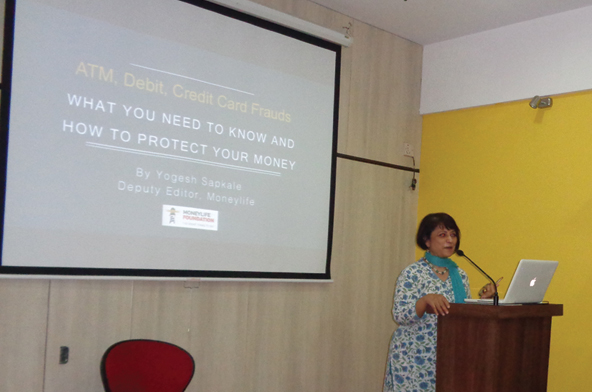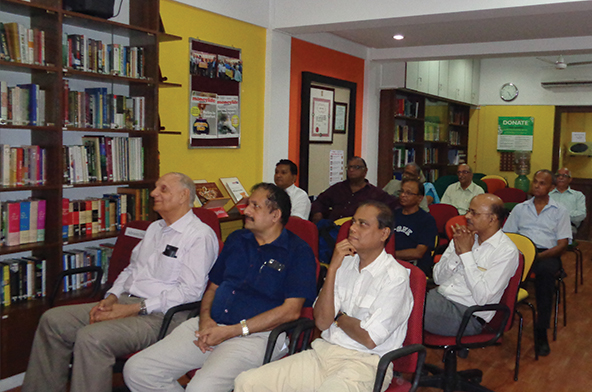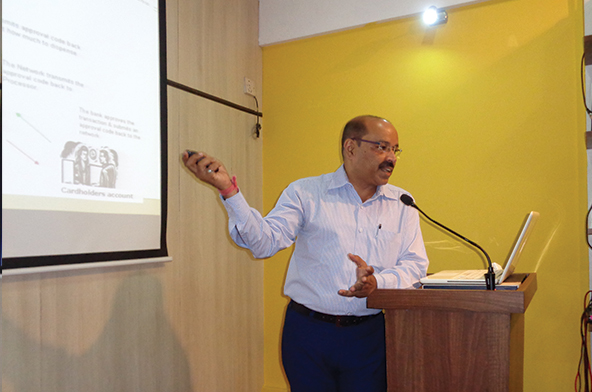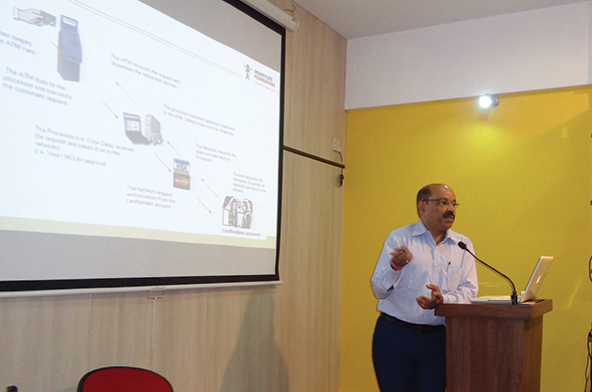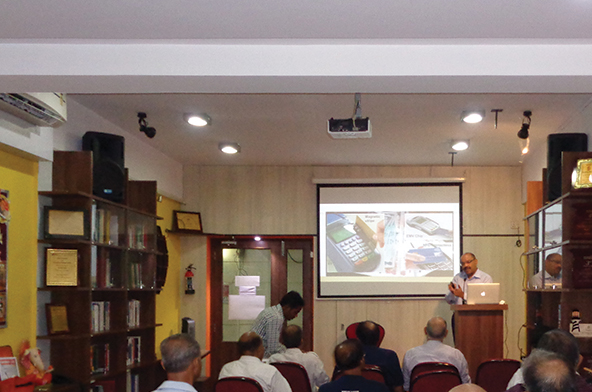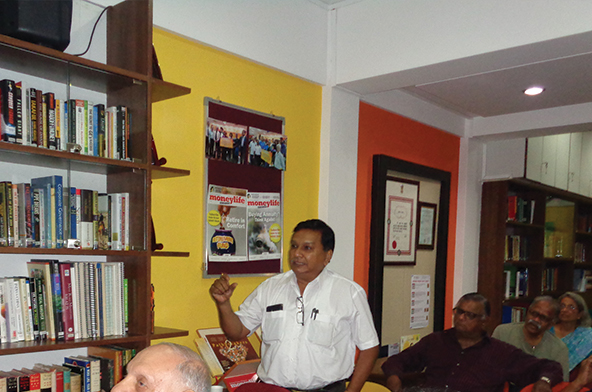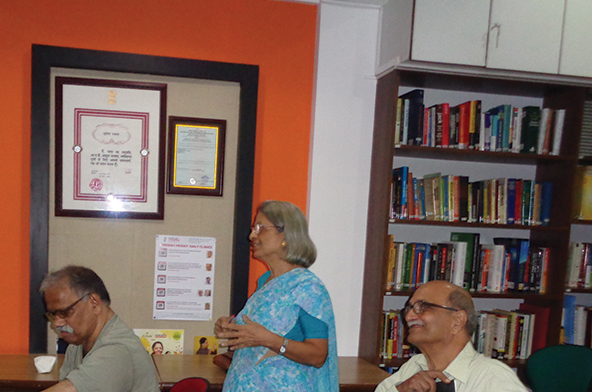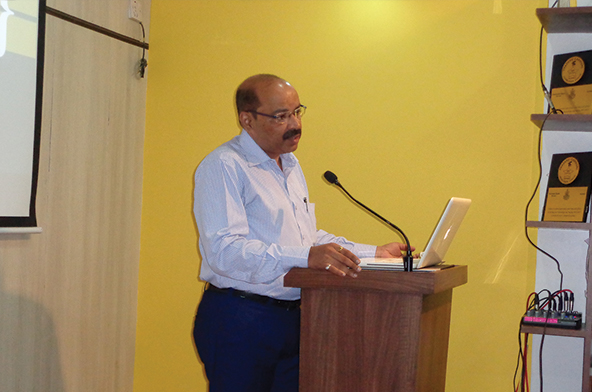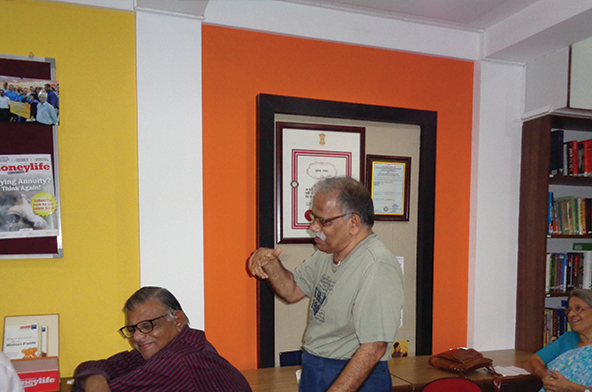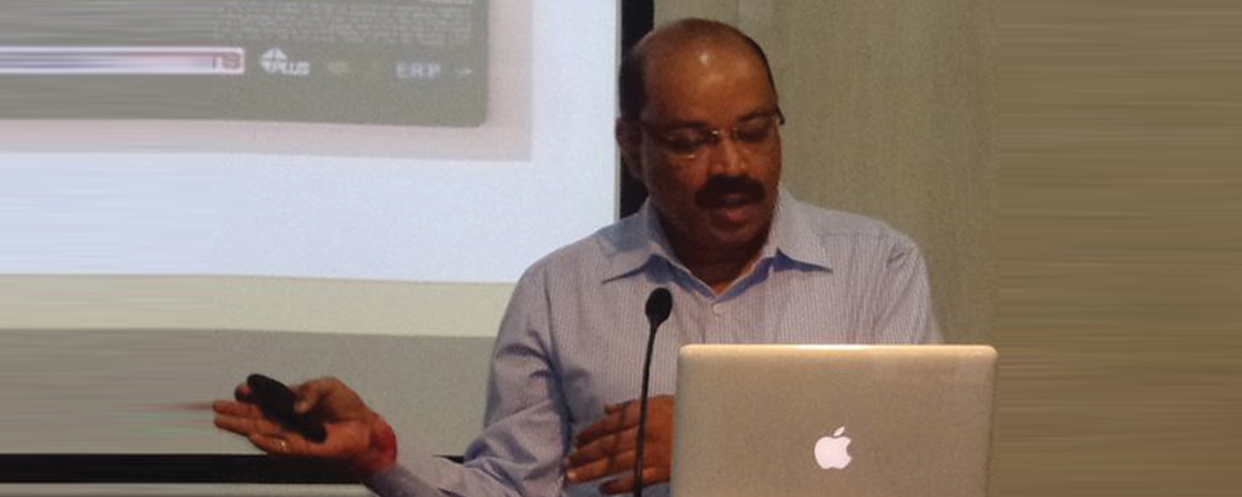
“While incidents of plastic card related fraud will come down over the years, criminals will shift their focus towards cards that are not present or online frauds. In this scenario, bankers will not only have to monitor their systems and vendors but also keep a track of geolocation to confirm customer’s proximity with the point of sales or where the transaction took place”, said Yogesh Sapkale at the Moneylife Foundation workshop to guide people on safe card usage.
He further pointed out that staying a jump ahead of hackers and scamsters requires huge investment by banks and constant vigilance and unless the regulator constantly monitors banks and forces them to upgrade their systems.
The focus of the workshop was on how every individual should take steps to protect her money through some simple precautions. He said, “The EMV chip and PIN card are more secure and hence are being used worldwide. However, in several countries, including India, EMV chip cards still come with magnetic strip to backward compatibility. But this makes the entire exercise futile. The Reserve Bank of India (RBI) has given a deadline of 31 December 2018 to replace all mag-strip cards with EMV chip and PIN, and hopefully it will help reduce plastic card frauds.”
Mr Sapkale started the session by explaining plastic money or ATM (cash cards), credit cards, debit cards, pre-paid cash cards and store cards. “Cards help in reducing cash handling risks. Cards use magnetic strip or EMV chip to store customer data. EMV chip cards are considered more secure than magnetic strip as the data is encrypted and hence difficult to copy the data just by using skimmer devices.”
“Plastic money was meant to reduce dependency on cash or currency. With this aim, most of the cards issued by banks to account holders are ATM-cum-Debit Cards, which can be used to withdraw cash from ATMs and use it for shopping. However, Indians are found using ATM-cum-debit cards mostly to withdraw cash and not for shopping. We prefer credit cards for shopping. Near Field Communication (NFC) or contactless cards, allow simplified transactions between two devices within certain proximity to each other and with stipulated transaction limit. For transactions above the limit, the customer is required to use PIN to validate, “he said.
He then explained the process of ATM transactions and what role is played by processors, networks like Visa, MasterCard or RuPay.
Talking about ATM fraud, where data of over 32 lakh customers was allegedly compromised, Mr Sapkale explained best practices for using plastic money in a safe and secure manner. He said, “You must change the PIN of your plastic card regularly. Since the PIN consists of just four numbers, making it difficult to create another secure PIN. So start with an original but memorable phrase and using the keypad of old (basic) mobile phone, convert selected letters of that phrase into corresponding digits to create a secure but hard to guess PIN. For example, using the same method ‘Moneylife says know what’s coming’ becomes 6592 (using the digits corresponding to the first letter of each word—6 for ‘Moneylife’, 5 for ‘know’, 9 for ‘what’s’ and 2 for ‘coming’).”
On using ATMs, he said, one should look for any suspicious attachment on the machine. “The attachment slightly protrudes from the machine and may not be parallel with the inherent grooves. A good rule of thumb is to always shield your card and the keyboard, no matter how comfortable you are with the place. If your card is stuck inside an ATM, be suspicious of anyone offering help and immediately report it to the bank and raise an alert.”
“You should also write an email or letter to your branch manager and follow it up, in case you are duped at any of the bank’s ATM. Send a reminder and it there is still no response, escalate the matter with the nodal officer and then to internal Banking Ombudsman,” he added.
“Ask Bank to lower limits on your cards. Also, check if your cards can be used only domestically, unless you frequently visit other countries. Opt for SMS and or email alerts. Regularly check your account statements. Last but not lease, always be alert, which will save you and your money,” Mr Sapkale concluded.
This was followed by an interactive session on issues faced by people with their bank.


